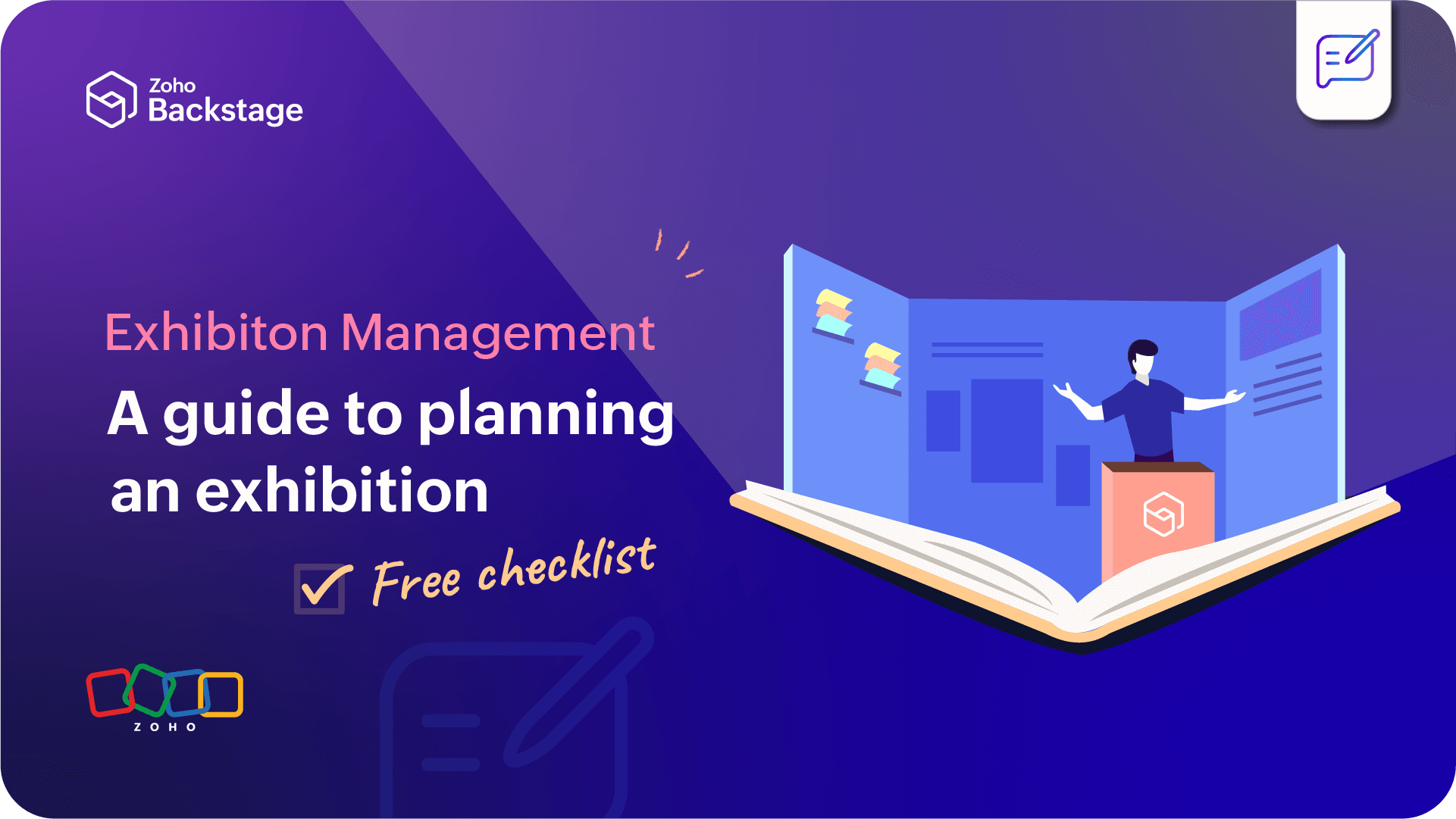- HOME
- Management
- An event planner’s guide to upskilling for the future
An event planner’s guide to upskilling for the future
- Last Updated : August 18, 2023
- 2.0K Views
- 7 Min Read

COVID-19 has had a rather extraordinary effect on people. We followed the rules—sheltered in place, kept up with social restrictions, and repeatedly sanitized every flat surface in our houses. We also made plans to upgrade ourselves, be it at work or in our personal lives. And before long, everyone and their neighbor started talking about upskilling and reskilling. From blogs to YouTube videos and social media posts, it was the most-talked-about topic on the internet and with good reason. The future, for the most part, is still unpredictable.
While before, upskilling was considered a perk, something people bored with their careers did to get over the tedium and enhance their work lives, today it is a necessity—keep up with the pace or go home. For people in the events industry, this is even more so. The “new normal” is going to be nothing like the old one—it’ll be digital and heavily dependent on technology. Your audience’s needs will also see a marked difference. Considering everything, professional development is essential to keep up with the changes in the post-pandemic world.
Why should event planners upskill?
Before we get to the how, let’s see why you should upskill. The events world has only now become comfortable with virtual events, and there’s already a lot of talk about going hybrid. Then there’s all the technology we’ve seen in recent times—holographic technology, artificial intelligence, telepresence attendees—which are all becoming more and more enticing. Event planners have to keep up with all these latest developments to stay relevant in an industry that’s in a constant state of flux. Here are three good reasons to upskill and to do so immediately.
Ensure job security
The events industry has been one of the hardest hit by COVID-19, with most events being canceled or postponed. In a recent survey by PCMA, around 12 percent said their salary has been reduced and 6 percent have admitted to laying off team members. A lot of employees in the event technology sector have also been laid off or furloughed.
In this situation, every bit of skill matters. Additional training will help you not only hold on to your current job but will also help with promotions and raises once things stabilize. Now, this is a proven fact—a survey says 77 percent of employers prefer to shortlist people who upskill regularly because it’s easier to have people who can adapt to all situations than it is to find someone new and capable every time crisis strikes.
Future-proof your career
Nothing is set in stone, especially now. First, there’s been a rapid development in event technology with something new releasing every few months. Then there are other human-centric skills like communication or soft skills that are becoming increasingly important today. By constantly upskilling, event planners can stay up-to-date with the latest trends in your industry and cultivate a variety of other skills that will make your transition to another company or position even easier.
Like a respondent in the PCMA survey said, “It feels like my industry became obsolete overnight.” This is proof that the majority of event planners today are sadly lacking in skills and finding it hard to cope with the current situation, let alone the future. By identifying and acquiring the most important skills and emerging trends in your industry (for events, it’s virtual events now), you will be one of those few people whose expertise will make them in-demand in the industry. No better way to stay relevant for the future.
Grow as a person
Upskilling not only benefits your professional life, but it also helps you become a better version of yourself. It gives you a new perspective, fresh ideas, and, most importantly, constant motivation. You owe it to yourself to keep your skills updated; it’s the most important investment you’ll ever make. Then there’s the benefit of expanding your network.
When you take a course or attend a workshop, you get the opportunity to meet more people in your field—inspiring people—who can open up new avenues for you. And who knows, you might even find a new passion or talent that you never knew was possible for you.
Subscribe to The Green Room
Sign up here and get all the most relevant MICE industry content delivered right to your inbox once a month.
By submitting this form, you agree to the processing of personal data according to our Privacy policy.
4 ways to upskill for the future
We all know this is the perfect time to upskill—we’re on the cusp of immense change. Whatever we learn today will very well decide the lives we lead and the people we become tomorrow. And no, that’s not dramatic, just honest. Here are four tips to upskill, upgrade, and take charge of your future.
Master in-demand skills
The event industry is transitioning into a digital world. Virtual events are almost mainstream and everyone knows the future is hybrid events. Everyone’s moving virtual, and, even for live events, there’s more technology on hand than ever before. Event planners who know their tech will always be an asset to their company and clients, because as cliche as it sounds, the future is technology. This is the right time to learn how to host events in a digital setting and peruse the available virtual event tools.
Start now by studying the market, the trends, and your attendees and finding the best way to address them. Follow industry leaders, read the latest research, and become a member of professional associations in the events industry to stay in touch with the latest news regarding it. This will in turn help you gauge how the industry is transforming and what skills are needed to excel in it. Apart from this, you can also get industry certifications like the Certified Meeting Planner (CMP), Digital Event Strategist (DES), and more.
Start with microlearning
Microlearning is an approach where you learn in “bite-sized” pieces, just a concept or two every few days. This method has proven successful for many reasons—you don’t need a lot of time, you better retain what you learn, and you stay motivated throughout the period. For beginners, this is also a lot less intimidating than signing up for, say, a three- or four-month course.
Microlearning is similar to a habit you cultivate, something that’ll serve you beyond this period and that you’ll carry with you into the future. It’s reading an article every day or watching a how-to video on Youtube. It’s a lot of small things done over a period that provide immeasurable value when it’s all said and done.
Upskill online
Even if the current situation didn’t make on-site training difficult, not to mention highly unsafe, the internet is a good place for upskilling fast. And it’s also cheaper. Whether online courses that have credits and certificates, virtual courses, masterclasses, or video tutorials on YouTube and other platforms, the internet is full of information you can benefit from.
A lot of online academies like Udemy and Coursera also offer free courses in a lot of verticals that you can take to complement your event planning skills. For example, a course in psychology or marketing might be of a lot of help for event professionals who have to be constantly in tune with the needs and wants of their audience.
Get a mentor
A mentor can teach you things that you’ll never find in a book. In a recent survey, 62.7 percent of respondents preferred upskilling programs that had access to mentors, and 87.9% of respondents believed mentors could boost their career success. There’s a quote by Maya Angelou that sums up the nature of a mentor rather poignantly:
“In order to be a mentor, and an effective one, one must care. You must care. You don’t have to know how many square miles are in Idaho, you don’t need to know what is the chemical makeup of chemistry, or of blood or water. Know what you know and care about the person, care about what you know, and care about the person you’re sharing with.”
Mentors don’t just teach or coach, they share their experiences and help you discover your strengths. They also make the whole thing less daunting. As mentorship is built on trust and transparency, you must be very careful whom you choose to be your mentor. Choose someone you respect and admire because otherwise, it’s just a waste of time.
Finally, upskilling takes quite a bit of hard work and commitment. But we promise you’ll be happy for every minute you spent cultivating these new skills. Also, if you’re in a position of power in your company or even the industry, you have a chance to foster a culture of learning and growth. Give your employees an opportunity to learn and support them in their skill-building endeavors. If this period has taught us anything, it’s that together we’re stronger.
If, like us, you're more of a social person, let's connect on Twitter (@ZohoBackstage) and we'll keep you up-to-date with all the latest event news.
 Nisha
NishaMarketing and content at Zoho Backstage. Cultural misfit. Armchair traveler. Productivity geek. Sometimes, I write poetry. Sometimes, it rhymes.








